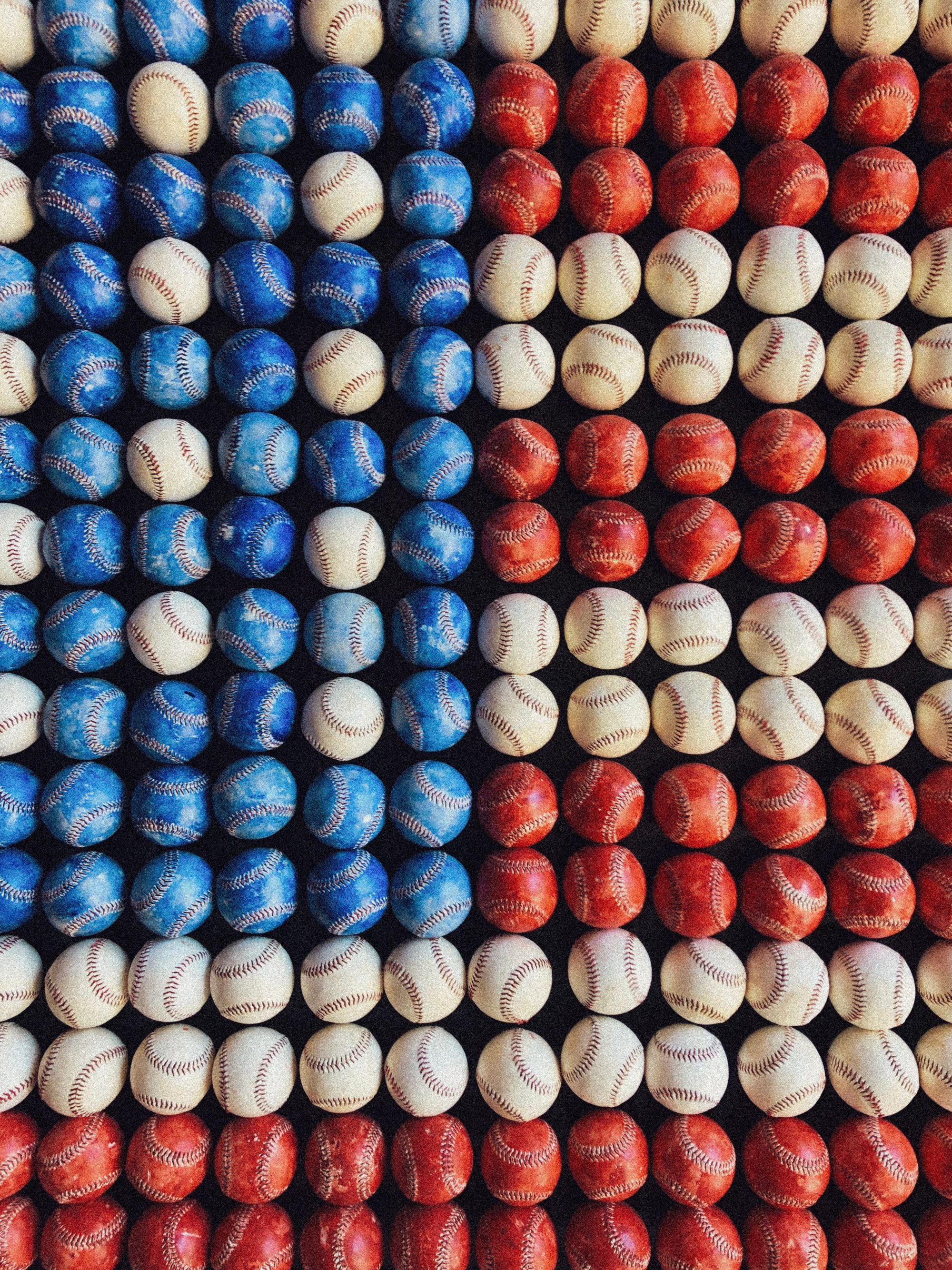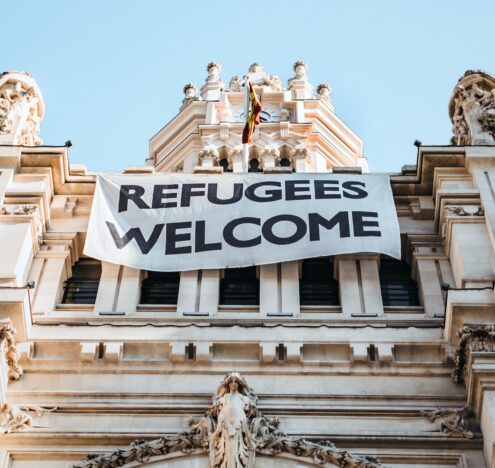The improbable season and World Series victory of Washington DC’s beloved Nationals, affectionately known as the Nats by their fans, has sparked excellent writing about their come-from-behind season, the talent and vigor of their youthful players, the steady and calm leadership of the oldest team in baseball’s veterans (affectionately known as Los Viejos), the traitorous defection and our wonderful schadenfreude claimed in the departure of he who shall not be named to a team to the North, and much else. But there has been a glaring omission in literature that is of keen interest to students of international affairs, a critical question that must be answered. It is of course: “What does the National’s victory mean for US national security? “ Inquiring minds surely want to know. What follows is my attempt to address this crucial issue.
With a name like the Nationals, it seems inevitable that we address a topic swirling in security circles these days: the meaning of nationalism and its seeming return as a force in international politics. Nationalism at its core is really just tribalism writ large. That is: an affinity for people who share a common history, culture, language and perhaps religion, and sometimes denigration of others. History, tradition, and 23 and Me tell us that many “nationals” share a common genetic link as well.
An affinity for people like ourselves is probably rooted deep in our evolutionary history. In the zero-sum Hobbesian state of nature of our hunter-gatherer past, knowing who was on my team and who wasn’t was critical for survival. People like myself could be relied upon. People who were somehow “other” were a threat and should not be trusted. Though human society has progressed a good deal since then, that legacy of connection to people most like ourselves is still imbedded deeply in our lizard brains, and the leap of faith needed to trust others not like ourselves is often insurmountable .
The persistent presence of race or ethnic or religious-based creeds of superiority of one group of humans over another throughout history speaks to the notion that, to some degree, nationalism is in our nature and fulfills for some a deep psychic need independent of economics or ideology or resource scarcity or other sources of human competition and conflict.
But what, if anything, does this have to do with baseball? Support for sports teams is a kind of tribalism and, if I may take the liberty, in the nation’s capital it might be termed “Nationals-ism.” I’ll leave the question of the economic significance for hockey fans, or: “Capitals-ism” for another day. Fans of one team or another can indeed behave tribally. They feel connected to others like them and distrustful of those who do not share their beliefs. Growing up in the San Francisco Bay Area my family were Giants fans when, to our shock and dismay, my sister came home with a boy who supported those enemies of all that is good and right and just in the world: the Los Angeles Dodgers. But being modern, tolerant Californians, we tried to be accepting of my sister’s choice and welcomed my brother-in-law to the family. It has provided some solace that he agreed to raise the children right and we speak of his heretical faith only in whispers.
Once upon a time in America, our professional sports were riven with the same bitter divides of our larger society, especially over race.
We Nationals-ists share other tribal attributes. We dress the same, at least on game day. We sing the same silly songs about juvenile sea life, and make common gestures. The warriors of our tribe have many arcane rituals and dances that play out in the dugout after victories in battle. When he whose name we do not speak left for the North he was banished from the tribe. His clothing was burned and he and his progeny will be forever cursed.
But what is sports tribalism, really? As that keen cultural observer, Jerry Seinfeld, has correctly pointed out: we really root for the clothes. We want our clothes to beat their clothes. When a player takes off our clothes and puts on theirs, we hate him. When a team comes from another city and puts on our clothes we suddenly love them. Same people, different clothes. There is a more serious point here – Sports tribalism, Nationals-ism, is positive because it is so transient. The doors to entry and exit into the tribe swing easily. One can easily leave one tribe and join another. While leaving may provoke enmity from those betrayed, one is welcomed with opened arms without hesitation when the traitor adopts a new uniform.
Salient differences between traditional nationalism and Nationals-ism should be noted. Except between Eagles fans and each other and among drunk English soccer hooligans, sports tribalism doesn’t usually lead to violence, unlike the countless wars of identity replete throughout human history. Fans of one team or another can revile each other but they can also sit in the same bar and watch the game on TV, congratulate the winning side when it is over and swear oaths of eternal allegiance: “Wait til next year!”
Once upon a time in America, our professional sports were riven with the same bitter divides of our larger society, especially over race. In the most un-American of ways, the nearly-pure meritocracy of the ball field excluded so many players of talent not because of their abilities, but because their skin was the wrong hue. And in some simple and some profound ways, our sports helped heal those same divisions. The first time a white kid playing stickball stepped up to bat in a Birmingham neighborhood and proudly proclaimed that he was number 42 and mimicked a radio broadcaster welcoming Jackie Robinson to the plate, America turned a corner. Talent overcame bigotry.
And look at our Nationals today. Some of our heroes are Soto, Robles, Sanchez, Elias, Rendon, Suzuki alongside Zimmerman, Strasbourg and Turner. The capital may be riven by bitter divides over immigration policy, but on October 30 I am doubtful that anyone within a hundred miles of Washington DC didn’t thank God that we welcomed people from Venezuela, the Dominican Republic, Cuba, Mexico, and Japan to our shores so they and their children could play this game. Many institutions may have a ways to go before they truly look like America, but the Nationals dugout isn’t one of them.
In the end, Nationals-ism perhaps shows us how to separate the good from the bad of old-fashioned nationalism. We can tickle that ancient lizard part of our brain that craves meaning and security in identity and belonging, that lives vicariously through its warriors defeating hated enemies in battle, that revels in the joy of victory and agonizes in defeat, but at the same time that also speaks to our higher values of inclusion rather than exclusion. Those values that recognize that while our players may at time have more talent, more grit, more determination, there is also an element of luck. That the gods of fate sometimes smile upon us and make a ball stay fair or a fielder fumble a critical play, and remind us that no matter how great our achievements in life may be, we sometimes get there because we were lucky and we had great teammates backing us up.
And in the end it is this kind of positive tribalism that is what defines American nationalism, and which is more appropriately termed patriotism. America really isn’t like other countries in the world. The world is populated by nation-states. Political entities that were formed recently around nations of people that in some cases existed for millennia. But the United States of America wasn’t built like that. Our founding documents created the United States of America. Our Constitution defines us as “the people of the United States of America.” There is no ode to a common history or culture or even language. Our founders created a political entity. Our founding wasn’t all that inclusive at the time. But our nationality – our seeking of that idealized “more perfect union” – came along with our efforts, and sometimes bitter struggles, to include all Americans.
Like the Nationals, America’s promise is simple and yet profoundly different from so many other places in the world. Come here from anywhere, play by the rules, work hard and we’re happy as hell to have you on our team. As long as we keep that in mind, as long as we welcome and exploit fully the talents of every American old and new, whether we are seeking a World Series trophy or leadership on the international stage, America will always have a distinct advantage. We may not always sweep the Pennant, but in the end, we’ll come out on top.
Rob Levinson is a retired Air Force officer who has lived in the Washington DC area since 2002 and now works as a defense analyst. Born and raised in the Bay Area, when it comes to baseball he has still left his heart in San Francisco but shamelessly has jumped on the bandwagon of his adopted hometown Washington Nationals. His hatred of the Los Angeles Dodgers persists no matter where he lives.





















